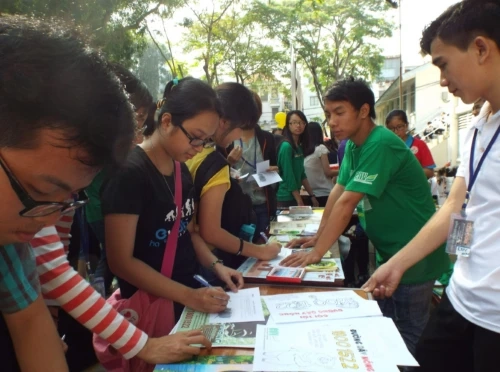The use of e-signatures in the Philippines has experienced rapid growth due to technological developments and the urge to improve efficiency in business transactions. However, there are issues of awareness and knowledge about e-signatures in the Philippines that require attention so that e-signatures can be well embraced in society. This article discusses the measures and campaigns that can be implemented to improve the awareness of the public regarding e-signatures and the advantages that come with it while highlighting the measures being undertaken by the major players in this market such as UNAWA, the leading e-signature provider in the country.
An Overview in the Context of the E-Signature in the Philippines
E-signature, or electronic signatures are ways of signing documents that have equal legal effect to traditional or handwritten signatures. Specifically, the Electronic Commerce Act of 2000 or RA 8792 legalizes the use of e-signatures and declares their authenticity and legal effect. However, there is still a large percentage of individuals who remain ill-informed of the functions of e-signatures and their admissibility.
How to Improve the Awareness of the Public
- Educational Campaigns: The Philippine government through government departments and agencies including the LTO has implemented sensitization campaigns by engaging private firms like UNAWA to create awareness on the e-signatures. Such campaigns may include awareness programs such as progressing webinars, social media promotions, and tutorial videos regarding the usage and security of e-signatures.
- Workshops and Training Programs: Another feasible method is to arrange and deliver workshops and training sessions to firms and persons. They help students employ and exercise with e-signature platforms and let them know how easy and secure they are. For instance, UNAWA will regularly host sessions where users are not only presented with their e-signature products but they are also educated on aspects like the benefits of the tool.
- Integration into Academic Curricula: The addition of information on e-signatures to subjects taught in schools might help raise awareness of these technologies from a young age. Teaching topics like digital literacy or e-signatures in the educational process in schools and universities prepares students for their future workplaces.
Initiatives by Key Stakeholders
As one of the leading legal technology solutions in the Philippines, UNAWA has been one of the first to advertise and advocate the use of e-signatures. Their initiatives include:
- Public Demonstrations and Free Trials: As of the time of this writing, UNAWA offers public broadcasting of its e-signature products and free trials. These schemes help potential users to gain an understanding of the usefulness of e-signatures thus building confidence to adopt the new technology.
- Partnerships with Government and Private Entities: Thus, UNAWA cooperates with governmental institutions and private organizations to share e-signature services. These collaborations express themselves in large awareness campaigns and the use of e-signature as a new approach to business.
- Focus on Identity Verification: The first precondition can be associated with the requirement for rigorous identity credentialing in e-signatures. Besides the mentioned features, there is also the aspect of identity check being highlighted by UNAWA and using the best technologies for check signers to prevent fraud among the solutions provided. This focus helps users to avoid doubting the legitimacy of the e-signatures which in return improves their acceptance.
Conclusion
For e-signatures in the Philippines setting to be more prominent, the public must be made more aware of e-signatures. These activities, including information sessions, practical seminars, and collaborations with organizations like UNAWA, contribute to the development of e-signatures. This makes the users have confidence and rely on the e-signatures for the transaction processes since the e-signature solutions have good measures of identification checks. These are still ongoing initiatives and as these develop, the prospects for the e-signatures in this country are positive which will usher in a more progressive digital age in the Philippines.



